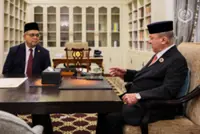PETALING JAYA: The mandatory Covid-19 screenings for foreign workers is another stumbling block for construction companies who are already suffering from halted operations during the movement control order (MCO).
Apart from the additional costs incurred, employers are also battling against time to get workers tested for the coronavirus before the commencement of work.






